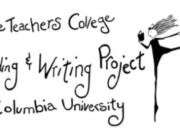I am afforded many benefits in my job as the Advocating for Literacy Program Manager at Booksource, but one of the best is attending different literacy conferences and meeting teachers from all over the country. Each conference is different, but they all have one thing in common: determined and passionate teachers.
At the recent Literacy for All Conference in Providence, RI, several sessions and workshops (including one with Lucy Calkins, the Founding Director of the Teachers College Reading & Writing Project) featured important takeaways for a specific group of educators: literacy coaches. Since I attended several of these sessions, here’s my recap of the conference’s best tips and reminders for lit coaches working in today’s schools and classrooms.
1. You need to get your principal on board. Whether you’re advocating for professional development, curriculum changes or educational purchases, lit coaches play an important role in helping principals create a community that prioritizes literacy. Make it your job to sell your principal on what’s best for your teachers and students. (Hint: research quotes work wonders.)
2. Part of your job is to develop a culture of learning—for everyone. Be at the forefront of creating a school culture where learning develops not only within the students, but within the teachers as well. Growth is crucial to all of us.
3. Change is difficult. Change is difficult for people in general, but it can be even more difficult for teachers. Empathize with those who are reluctant to change and adopt new ideas or practices. Offer support as often as possible.
4. Quality feedback is necessary for growth. Quality feedback helps teachers develop new skills and strength, but long bits of advice will often be defended or ignored. Providing feedback that is short and positive helps teachers maintain their autonomy.
5. Classroom visits matter. Lucy Calkins suggests that teachers, lit coaches and school leaders should visit classrooms together as a group. Watch what the other teachers are doing! Different people have different takeaways and different goals, and there’s always an opportunity to learn something new.
6. Performance is better than demonstration. During classroom visits, encourage visitors to become engaged in the teaching that is taking place in the classroom. By participating in a read aloud, for example, they become part of the performance and transformative learning can occur. Sitting in the back watching a demonstration requires no processing.
7. Processing time should be a priority. Speaking of processing, classroom visits, or any professional development activity, will be superficial without time to talk about it. Teachers need time to talk about their process and face their challenges together.
8. You’ve got to get your best teachers on board. To optimize the value of classroom visits, gather your veteran teachers and help them develop an open-door policy where inexperienced teachers are always welcome to visit, participate and learn.
9. You need to visit other schools. As a literacy or instructional coach, it’s easy to stay in your own school or district. But for true learning to occur, you too, should go outside your comfort zone. Visit other schools and districts to see what they are doing to help their teachers and staff develop and grow.
10. Treat teachers as you want them to become. This was a key point that Lucy Calkins emphasized in her session. If you treat individuals as they are, they will stay where they are. But when you see the potential in the teachers you work with and treat them as they could be, you inspire growth, development and positive change.
Did you attend Literacy for All? What was your favorite takeaway from this year’s conference?








Leave A Comment